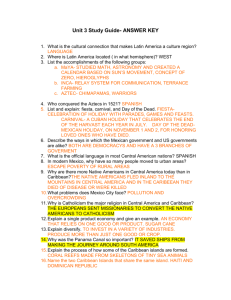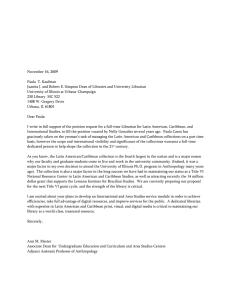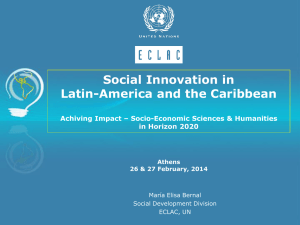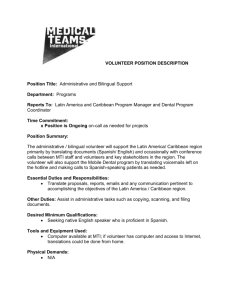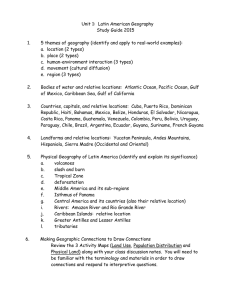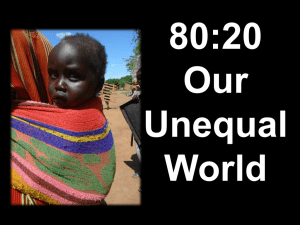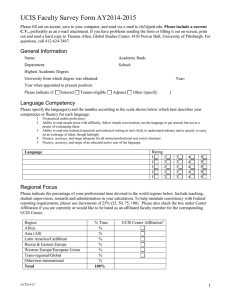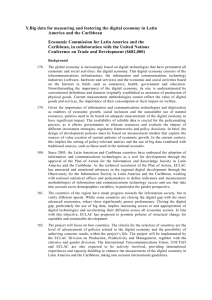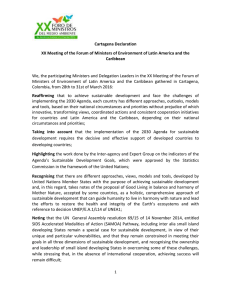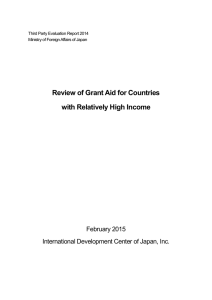Foreword 3
advertisement
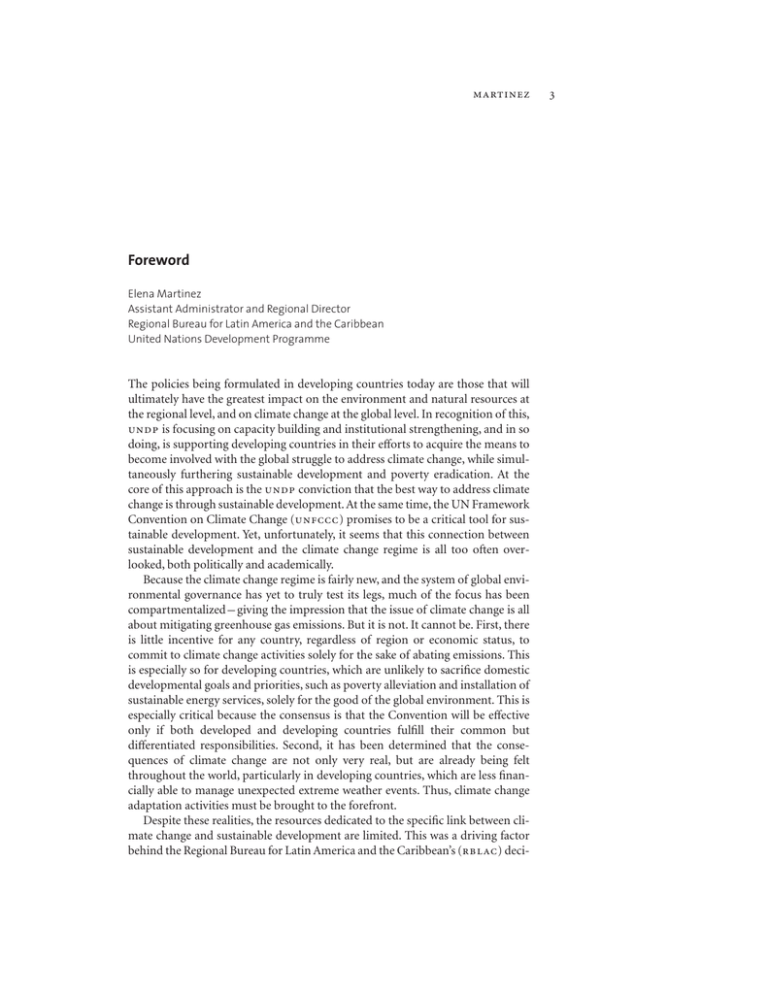
Foreword Elena Martinez Assistant Administrator and Regional Director Regional Bureau for Latin America and the Caribbean United Nations Development Programme The policies being formulated in developing countries today are those that will ultimately have the greatest impact on the environment and natural resources at the regional level, and on climate change at the global level. In recognition of this, is focusing on capacity building and institutional strengthening, and in so doing, is supporting developing countries in their e›orts to acquire the means to become involved with the global struggle to address climate change, while simultaneously furthering sustainable development and poverty eradication. At the core of this approach is the conviction that the best way to address climate change is through sustainable development. At the same time, the UN Framework Convention on Climate Change () promises to be a critical tool for sustainable development. Yet, unfortunately, it seems that this connection between sustainable development and the climate change regime is all too often overlooked, both politically and academically. Because the climate change regime is fairly new, and the system of global environmental governance has yet to truly test its legs, much of the focus has been compartmentalized—giving the impression that the issue of climate change is all about mitigating greenhouse gas emissions. But it is not. It cannot be. First, there is little incentive for any country, regardless of region or economic status, to commit to climate change activities solely for the sake of abating emissions. This is especially so for developing countries, which are unlikely to sacrifice domestic developmental goals and priorities, such as poverty alleviation and installation of sustainable energy services, solely for the good of the global environment. This is especially critical because the consensus is that the Convention will be e›ective only if both developed and developing countries fulfill their common but di›erentiated responsibilities. Second, it has been determined that the consequences of climate change are not only very real, but are already being felt throughout the world, particularly in developing countries, which are less financially able to manage unexpected extreme weather events. Thus, climate change adaptation activities must be brought to the forefront. Despite these realities, the resources dedicated to the specific link between climate change and sustainable development are limited. This was a driving factor behind the Regional Bureau for Latin America and the Caribbean’s () deci- 3 4 sion to support this volume. Climate Change and Development not only elaborates the linkages between climate change and the various components of development, such as energy, abatement, technology, health, forestry, and agriculture, but it considers the avenues available to developing countries, and includes discussions of demonstrable achievements that may be replicated. Further impetus for involvement with this volume is the range of social and economic extremes to be found in Latin American and the Caribbean. During the 1990s, the region experienced a modest but uneven growth rate. The decade was also marked by increased, yet volatile, private capital inflows. Consequently, despite overall regional economic growth, there are still pockets of poverty throughout the region that lack social and physical infrastructure such as education, healthcare, water, and energy services. The regional progress on poverty eradication in the 1990s was not sufficient to compensate for the damage done in the 1980s. In fact, in 1999 the number of absolute poor in Latin America and the Caribbean reached an all-time high of 220 million, which was further compounded by increased inequity between socioeconomic groups. The cycle of poverty, systemic paucity, and environmental degradation has the potential to self-perpetuate, particularly with regard to energy services. Without energy, economic growth is severely limited, as employment, health facilities, and education services are all reliant to varying degrees on energy. Thus, in tandem with economic growth, leaders throughout the region have been intensifying their commitments to improve the quality of life for their populations. The common underlying theme of the policies being implemented to alleviate poverty is fostering growth. For its part, has been focusing on capacity building and institutional strengthening to facilitate the introduction of policies and systems based on sustainable energy generation. Further, it has been promoting and supporting climate change activities throughout the region. The Latin American and Caribbean region is in the vanguard of activities that integrate climate change and sustainable development. As elaborated by the Latin American contributors to this volume, countries throughout the region have taken significant steps that demonstrate the region’s commitment to changing the path of development. From Brazil’s biomass initiative to the adaptation activities in the Caribbean, from Argentina’s fleet of natural gas vehicles to Costa Rica’s carbon sequestration projects, there is evidence that climate change initiatives are gaining momentum throughout the region. Thus, based on the progress that has been made, and work there is yet to do, has collaborated the Yale School of Forestry and Environmental Studies to produce this volume, which successfully integrates not only the broad concepts of climate change and sustainable development, but also the subtopics of impacts, financing, and flexibility mechanisms. This volume is a fundamental resource for decisionmakers in developing countries, whose actions to advance development today are destined to impact the future of climate change, and indeed, of sustainable human development.
